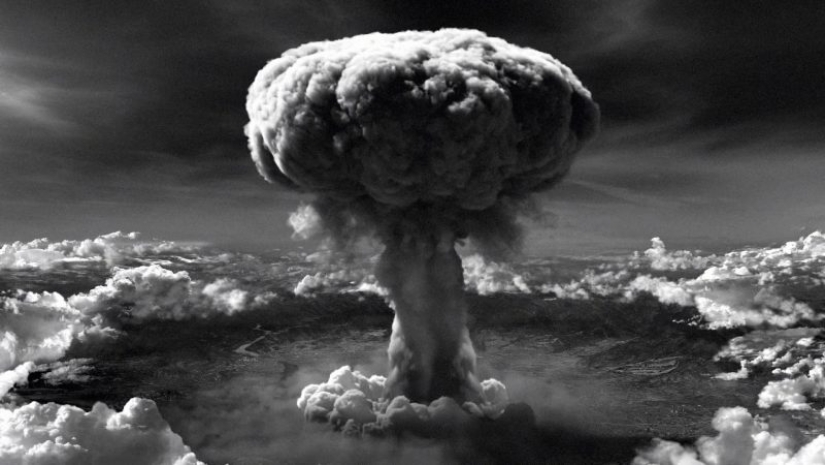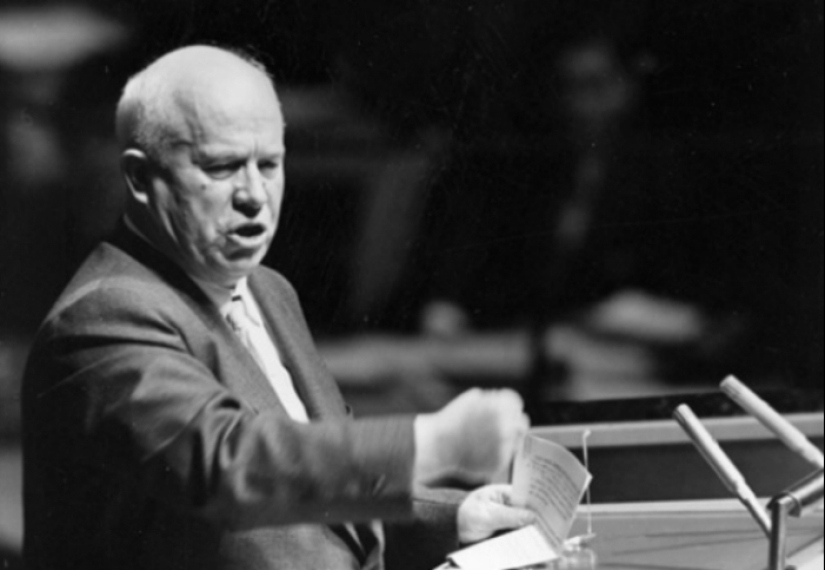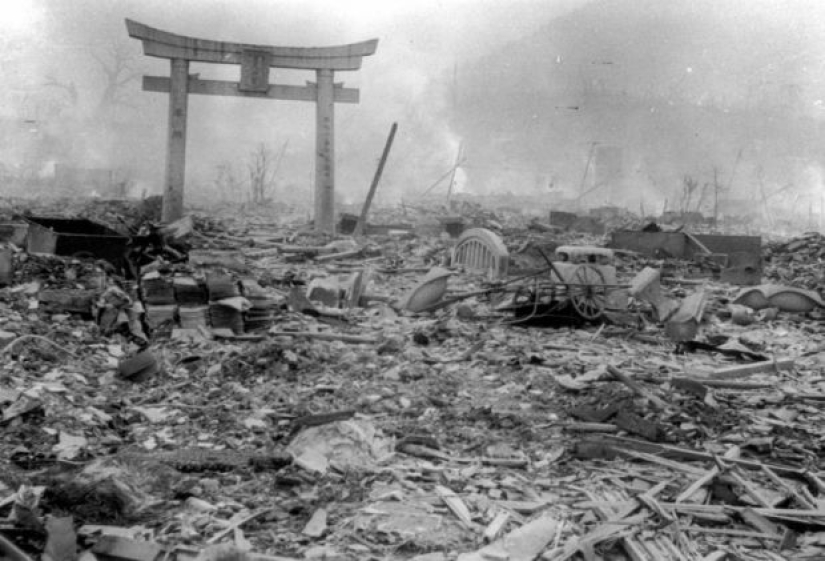"We will bury you!" and other mistakes in translation that led to disastrous consequences
Sometimes much more depends on accurate and correct translation than just understanding the interlocutor.… Below we will tell you about four situations that clearly prove this.
If the translators from these cases had worked differently, many problems would have been avoided, including the bombing of Hiroshima and Nagasaki. What other tragic events followed the erroneous translation, read in our material.

Nikita Khrushchev has always been famous for his explosive character. The Secretary General was not shy in his expressions during his public speeches and often used idioms not familiar to foreign colleagues. Therefore, difficulties often arose with their translation. For example, the phrase "We will bury you!", which Khrushchev interpreted Marx and his thesis that "the proletariat is the gravedigger of capitalism," was translated literally by the translator. Just imagine the surprise of Americans when they heard such an audacious threat addressed to them!

"We will bury you!" - these words instantly spread all over the newspapers and almost led to the outbreak of war. Fortunately, Soviet diplomats solved the problem in time, explaining that this phrase should be translated as "We shall be present at your funeral" ("We will attend your funeral") or "We shall outlive you" ("We will outlive you"). Later, Khrushchev himself apologized for the words he said. The politician clarified that he was not going to threaten anyone, but only wanted to note that the socialist regime would be able to survive the capitalist one.
However, the Secretary General obviously did not learn from his mistakes...Already in 1959, at a speech at the UN, he promised to show the Americans "Kuzkin's mother." The translator failed to correctly translate this idiom and said literally - "we shall show you Kuzka's mother". And in the United States, they thought that the mysterious "Kuzkin's mother" must be a new nuclear weapon, and Khrushchev threatens to demonstrate it in action.
In 1980, an 18-year-old Hispanic resident of South Florida named Wili Ramirez was admitted to the hospital in serious condition. The guy's mother was sure that her son was poisoned, because the day before he had lunch in an unfamiliar cafe, and soon he felt bad. The woman tried to tell the doctors about her guesses, but they did not understand her… Then they turned to an employee who spoke both English and Spanish, but his knowledge was also insufficient.
The fact is that the word "intoxicado", which means "poisoning" in Spanish, was regarded by the translator as the English "intoxicated" — "overdose with alcohol or narcotic substances". Because of this, the doctor decided that the guy was just "stoned", and sent him to be treated for an overdose.

The young man was dug up, but his condition only got worse. After a while, it turned out that Ramirez had a brain hemorrhage, which could have been avoided if the doctors had immediately given him the right medications. The rupture of the vessel developed into such a phase that it entailed complete paralysis of the body and left the 18-year-old disabled for life.
The victim's family was awarded a record compensation of $ 71 million, but it is unlikely that this money will be able to make amends for the fault of the medical staff and the would-be translator to the Ramirez family.
The most fatal mistake of a translator in the entire history of the world occurred after the Potsdam Conference on July 26, 1945. The declaration to the Japanese Empire in an ultimatum form demanded to capitulate in the Second World War. In case of refusal, they were expected to be "completely destroyed".
A few days later, the Prime Minister of Japan Kantaro Suzuki was caught by journalists and began to ask him what he thought about it. The politician replied: "Mokusatsu suru", which in one translation means "not to attach importance", in another — "to remain in wise silence, to ponder over the answer." With these words, Suzuki wanted to say that Japan does not want to jump to conclusions and so far prefers to observe neutrality.

However, the very next day, all American newspapers were full of headlines that Japan had decided to ignore the demands of the Potsdam conference. The minister's words were distorted in a context hostile to the United States, although they meant something completely different.
To prove their advantage, the Americans fired atomic bombs at the two largest cities of the enemy - Hiroshima and Nagasaki. You can read more about this tragic event in our other material.
And let's finish our selection on a more positive note. In 1977, US President Jimmy Carter carried out a program of visits to other countries, including Poland. By coincidence, there was no one among the 17 White House translators who knew Polish, so the politician had to hire a freelance employee.
In general, Carter's speech to the Poles was pretty good, but serious mistakes in translation made it a real failure. For some reason, the translator translated the phrase "when I left the United States" as "when I left the United States forever." Instead of praising the Constitution of Poland and calling it "valuable for people", as Carter said, the translator called it "ridiculous", which caused the indignation of the listeners.

But the apogee of the speech was Carter's speech about the dreams of Poles. "Desires" was translated as "the desire of a man for a woman," so the American president declared to the whole country that he dreamed of "having sex with Poles."
Immediately after this scandalous speech, diplomatic representatives of Poland sent a letter of complaint to the US Embassy. And although it was clear to everyone that the problem was in the translator, it did not reduce the degree of passion. American diplomats had to apologize for these annoying mistakes for a long time.
We hope that now you understand that working with foreign languages is a much more responsible occupation than many people used to think. And sometimes, due to an incorrect translation, not only a misunderstanding between the interlocutors can arise, but also a real international scandal.
Have you had any awkward situations related to translation errors?
Recent articles

Most of us think that the color of the eggshell does not play any role and it is possible not to pay attention. But it's not and ...

The more we rely on technology, the more potential power hackers gain over us. It doesn't matter if their goal is to help or cause ...

Creating a good portrait is one of the most difficult tasks for any photographer. In order to make a really natural and memorable ...